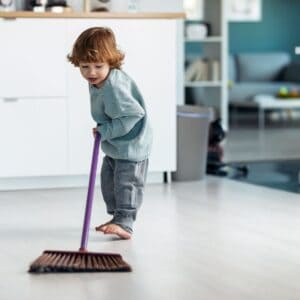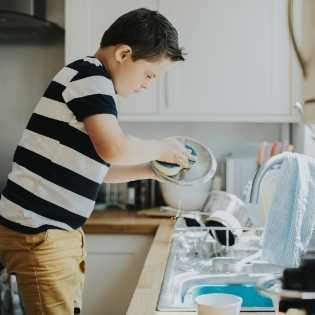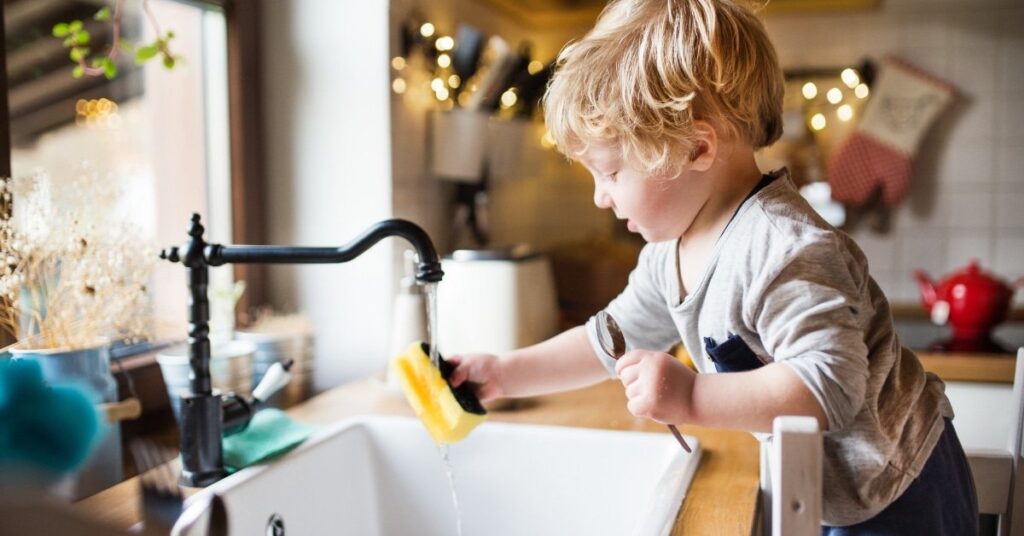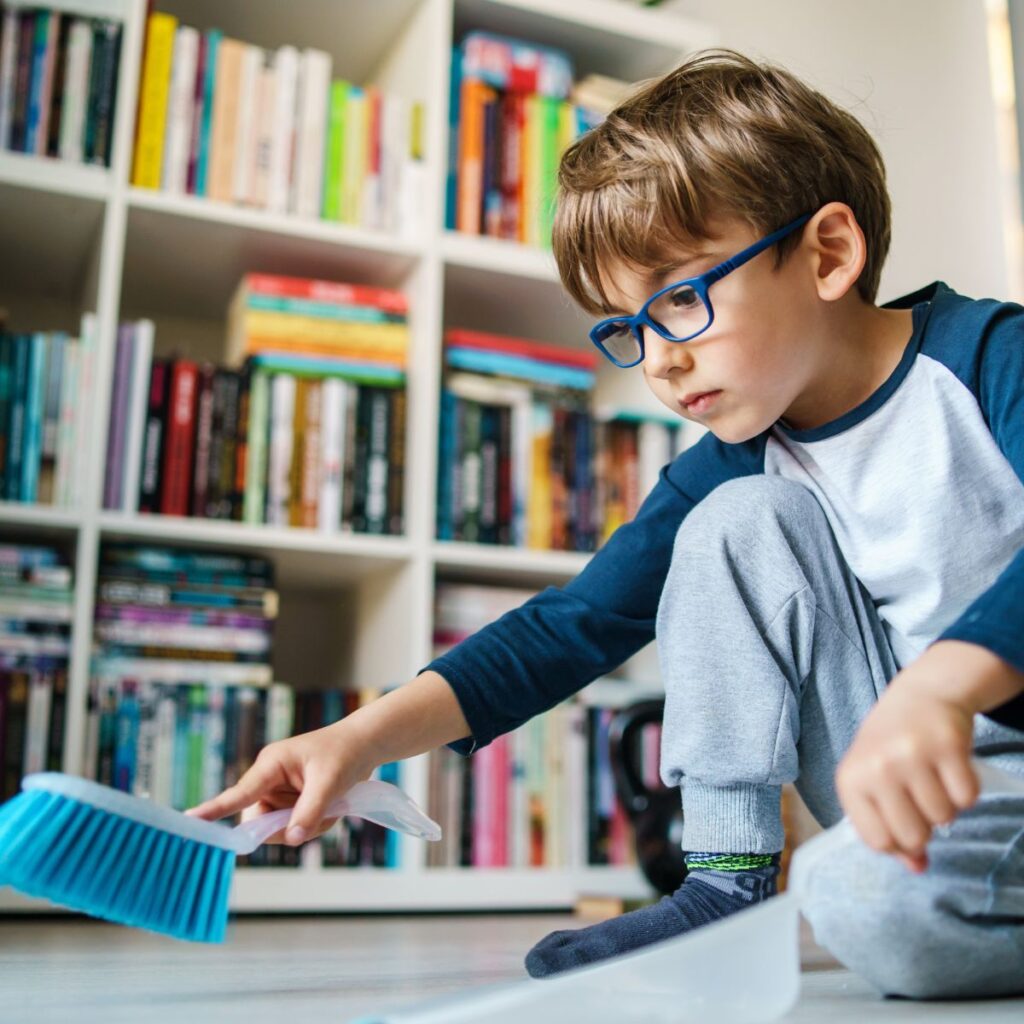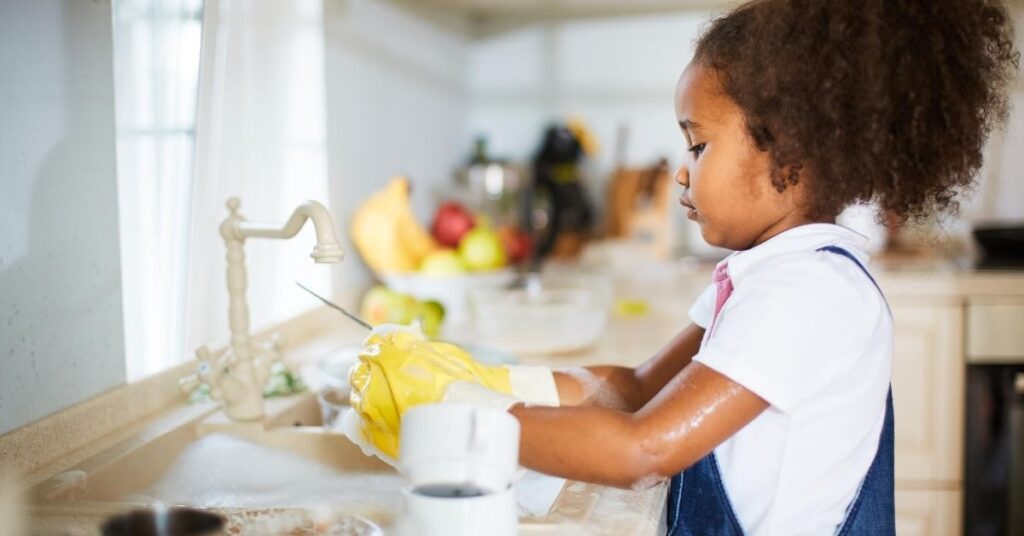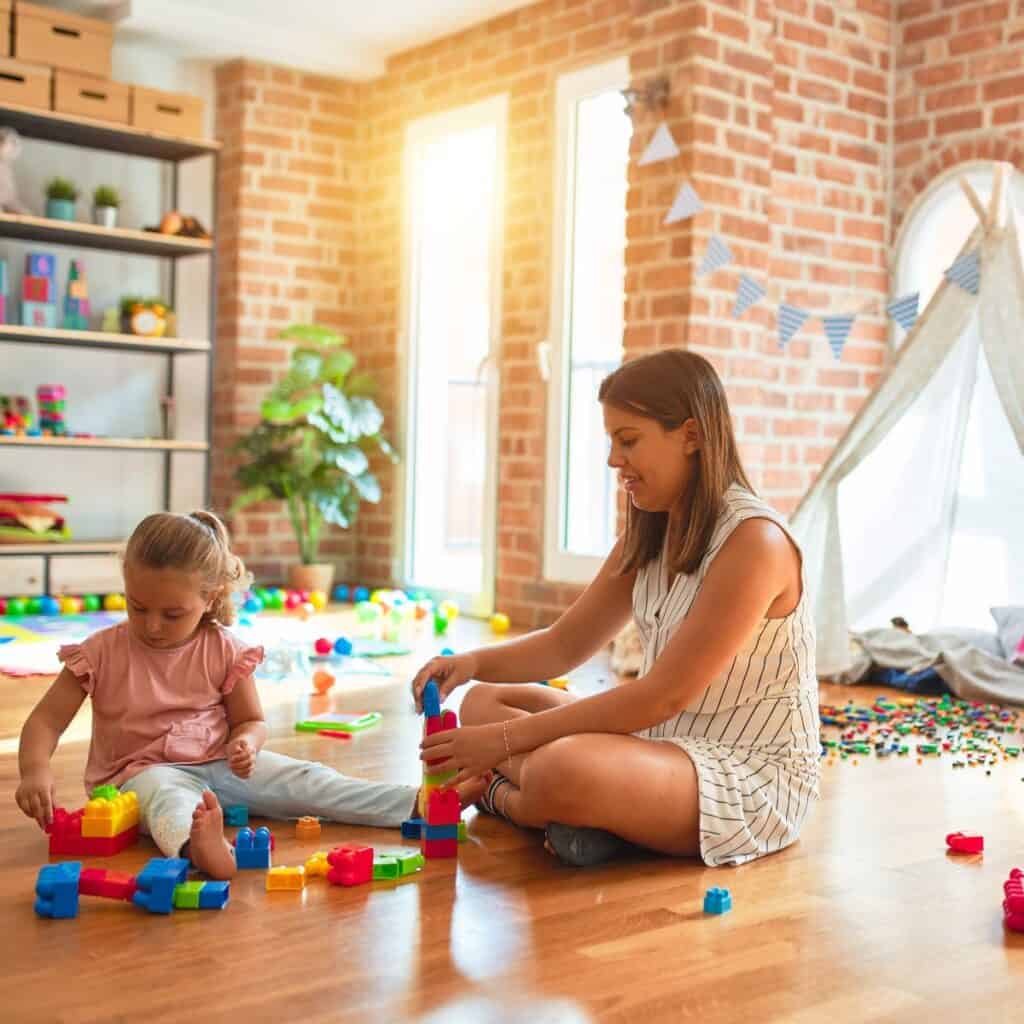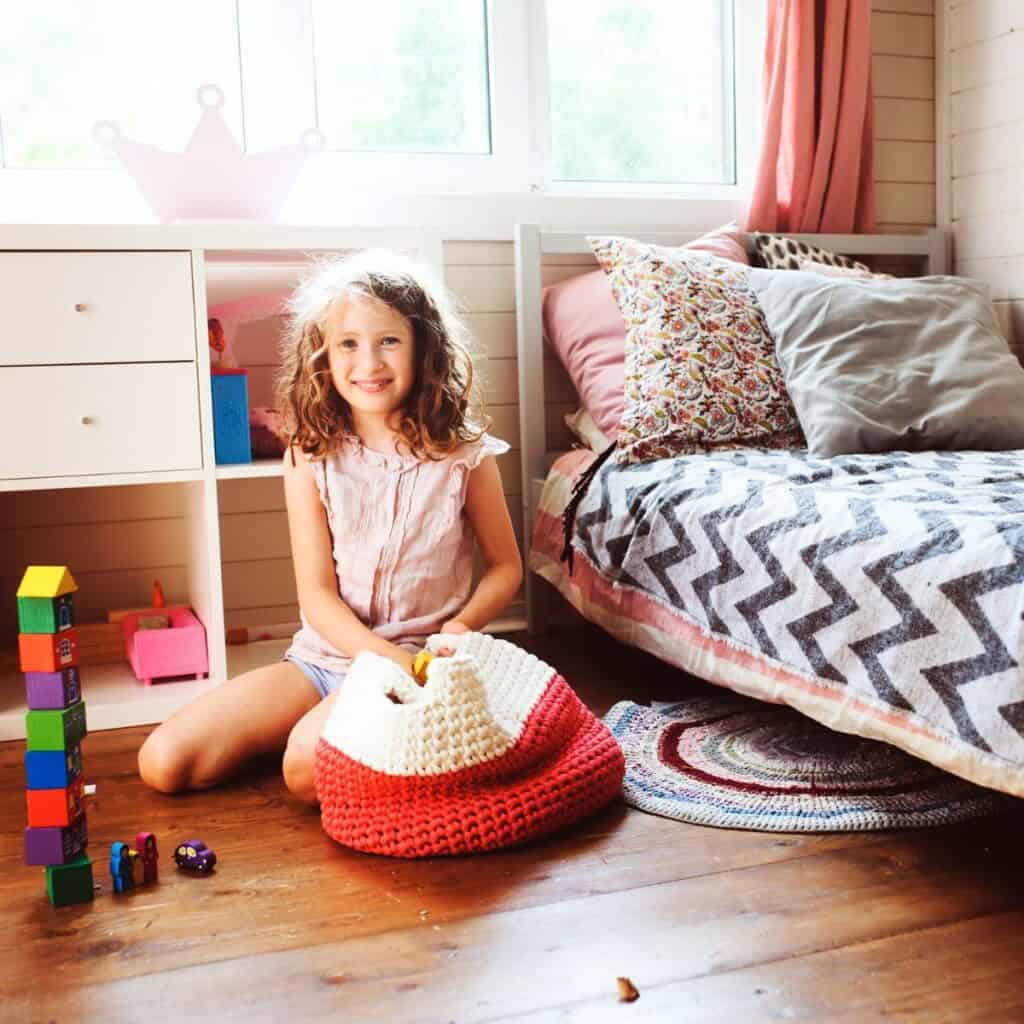Kids Chores
One of the best ways to begin teaching your child responsibility is to get them involved in household chores. Research shows having kids do chores can help them emotionally, academically, and later in life, professionally.
It’s hard to believe that simply having kids put clean dishes away or clean a bathroom sink can be so powerful.
But here’s why: children who do chores are learning that they’re part of a greater whole (in this case, their family) and it feels good to be a contributor (which increases self-esteem).
Kids also learn that unpleasant work is sometimes necessary. That not everything we do is fun or enjoyable but still serves a purpose.
And kids also simply learn the necessity of what it takes to maintain a home and take care of oneself and other family members – which is an essential skill for being a good roommate or spouse.
Get started on kids chores
While most parents want to have their kids do chores, they’re held back by the idea that getting their kids to do them will only lead to nagging, power struggles and fights. Which leads them to conclude: what’s the point?
But getting kids started on chores, if done correctly, doesn’t need to create friction in your relationship. No one enjoys doing chores – and kids are no exception! But as kids are brought into the process of cleaning the house, and doing other daily tasks – in a respectful way that makes them feel capable – kids will live up to the responsibility they’ve been given and help the family.
The best time to start chores is when kids are young, preferably toddlerhood when kids are eager helpers. But don’t worry if you haven’t started chores with your older kids – it’s still possible to get them involved in cleaning and helping out around the home.
See related:
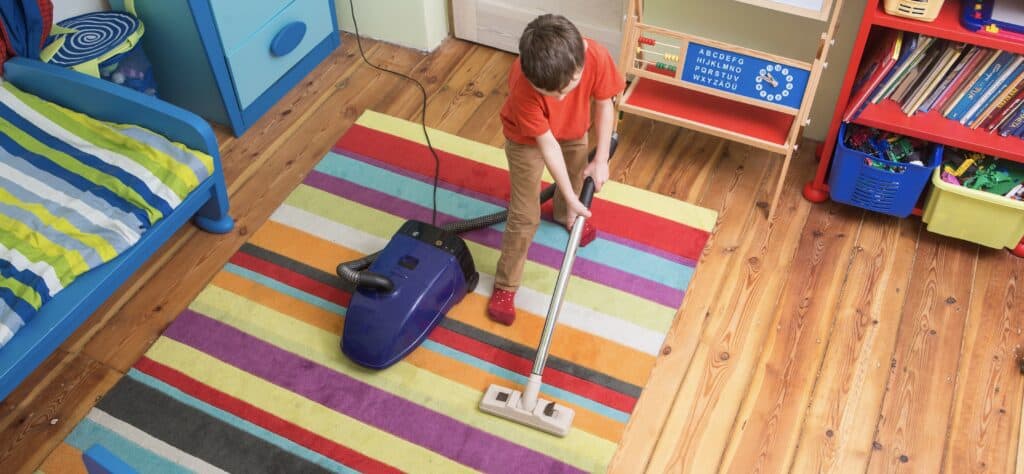
Get Your Kids Successfully
Started on Chores
A FOUR LESSON COURSE
Find age-appropriate chores for kids
As your child gets more involved in housework, you’ll want to find some age-appropriate chores for them to do.
Keep in mind that young children, and especially toddlers, will rarely complete a chore well. In fact, most of the time you’ll probably need to redo it. But the point at this age is less about doing a chore well, and more about encouraging a helping mindset in kids.
Older kids can take on more complex tasks such as cleaning a toilet or mowing the lawn. But even though they’re older, adolescents will still need your patience as they learn to master these tasks.
And although we can continue to coach them on how to do a job well, don’t expect older kids and teens to clean to your standards. Again, it’s more important to focus on the responsible mindset you’re nurturing in your kids than the actual outcome.
Popular resources to help with kids chores
Chores are easier when kids know what they need to do and how to do them. These resources can help.
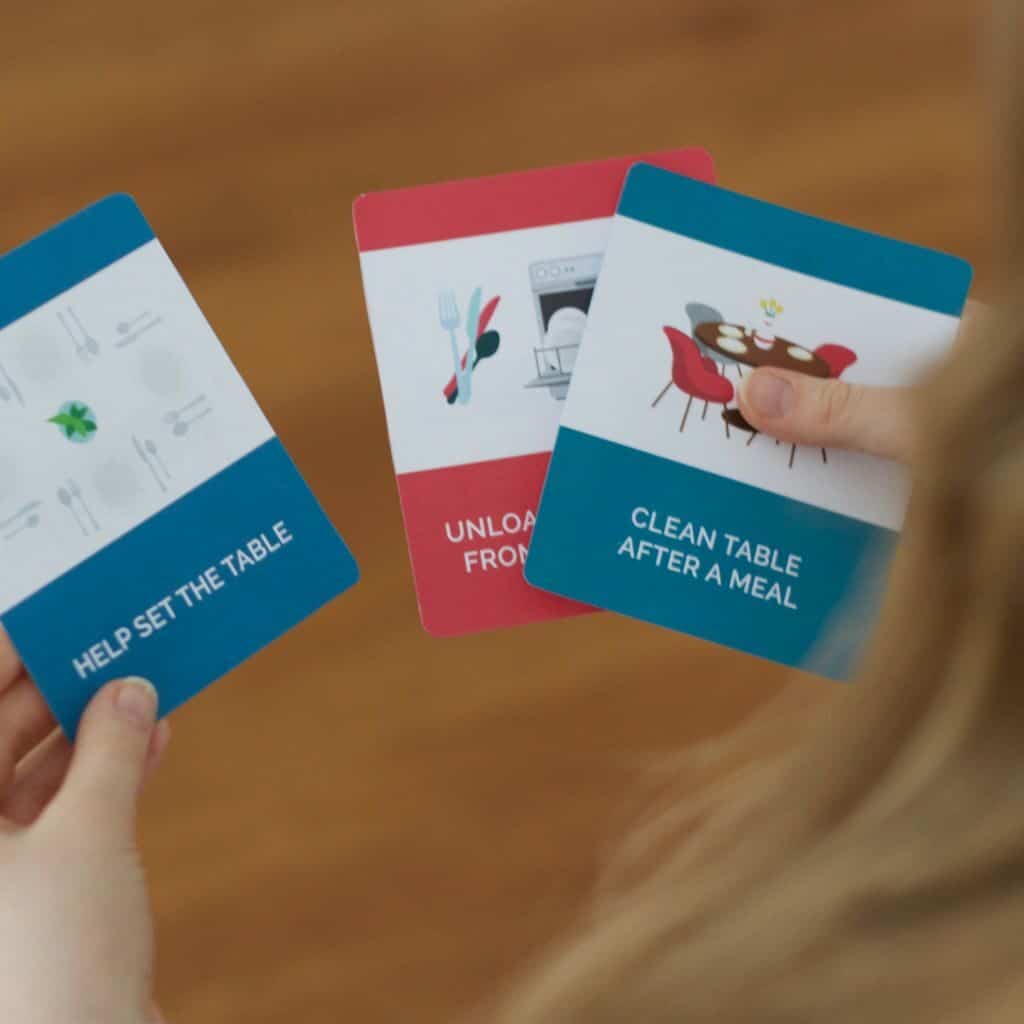
Chore Cards for Kids
These 101+ chore cards can remind your child which chores they need to do each day. Alternatively, they can be placed in a bowl to let your child pick out a chore or two at random. Includes a list of age-appropriate chores for kids.
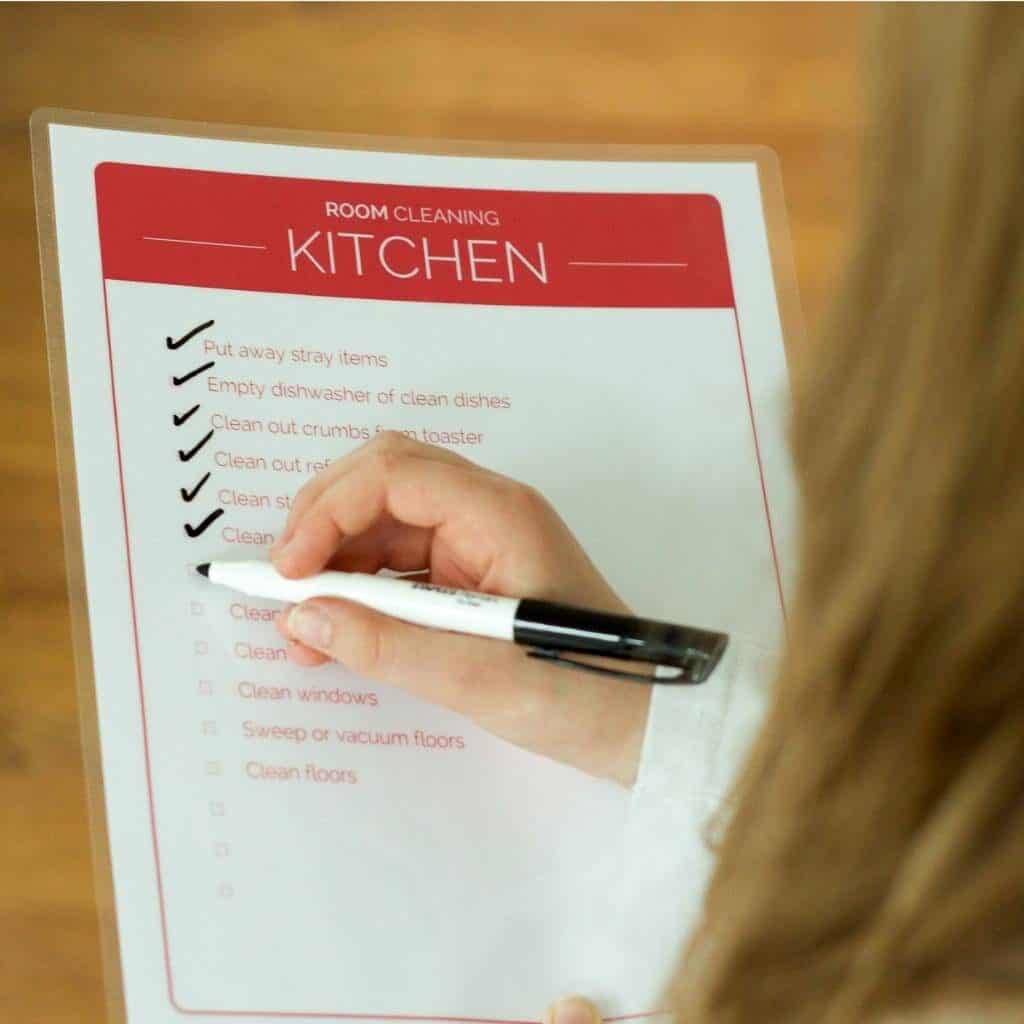
Room Cleaning Cards
These Room Cleaning Cards contain detailed instructions, empowering kids to clean rooms independently. Eight different rooms are covered in the cards along with the ability to customize each card to your specific needs.
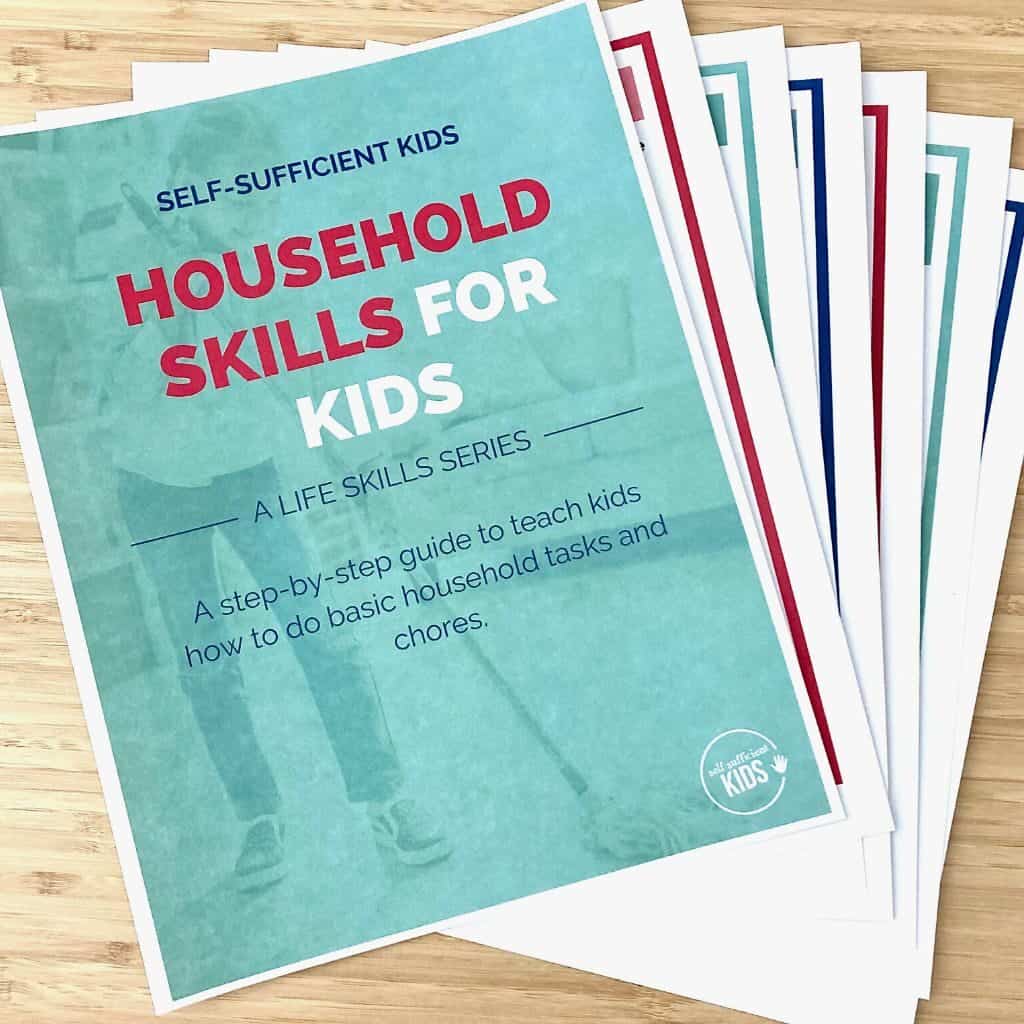
Household Skills for Kids
Help your child do eleven important household tasks and gain life skills with this instructional guide. Examples include: how to clean laundry, how to vacuum, how to make your bed, how to mop the floor, and how to wash windows.
Getting kids to clean
Chores can be more than just tasks kids do daily or weekly. Toddlers can be encouraged from an early age to pick up their toys after playing and older children can be responsible for cleaning their rooms.
Another way to get kids involved in household chores is to have a family cleaning day once or twice a month. The idea is the entire family cleans the house at the same time and kids take turns cleaning specific rooms. Having a family cleaning day creates a sense of teamwork and lets kids see that they aren’t being singled out by being asked to do chores. It’s fun at the end of the cleaning day to do something together as a family such as have a family game night or go out to dinner.
See related:

